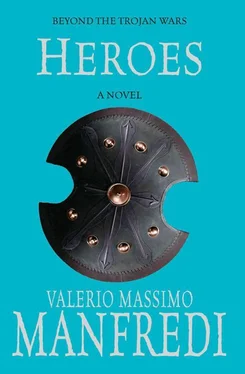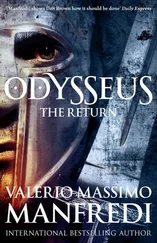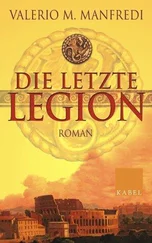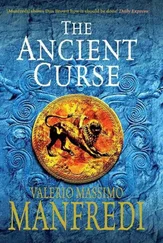Valerio Manfredi - Heroes
Здесь есть возможность читать онлайн «Valerio Manfredi - Heroes» весь текст электронной книги совершенно бесплатно (целиком полную версию без сокращений). В некоторых случаях можно слушать аудио, скачать через торрент в формате fb2 и присутствует краткое содержание. Жанр: Исторические приключения, на английском языке. Описание произведения, (предисловие) а так же отзывы посетителей доступны на портале библиотеки ЛибКат.
- Название:Heroes
- Автор:
- Жанр:
- Год:неизвестен
- ISBN:нет данных
- Рейтинг книги:3 / 5. Голосов: 1
-
Избранное:Добавить в избранное
- Отзывы:
-
Ваша оценка:
- 60
- 1
- 2
- 3
- 4
- 5
Heroes: краткое содержание, описание и аннотация
Предлагаем к чтению аннотацию, описание, краткое содержание или предисловие (зависит от того, что написал сам автор книги «Heroes»). Если вы не нашли необходимую информацию о книге — напишите в комментариях, мы постараемся отыскать её.
Heroes — читать онлайн бесплатно полную книгу (весь текст) целиком
Ниже представлен текст книги, разбитый по страницам. Система сохранения места последней прочитанной страницы, позволяет с удобством читать онлайн бесплатно книгу «Heroes», без необходимости каждый раз заново искать на чём Вы остановились. Поставьте закладку, и сможете в любой момент перейти на страницу, на которой закончили чтение.
Интервал:
Закладка:
The weather did not change until sunset, when a strong wind picked up from the desert and blasted out over the sea, dragging with it the remaining coalition ships and casting them into the high waves; the Teresh and Shekelesh were scattered in every direction.
That very evening the pharaoh was already celebrating his triumph over the invaders. He had the great royal parade vessel put out to sea, and he himself, standing at the prow, drew his bow and ran through the shipwrecked sailors still floundering in the waves. His concubines, stretched out on soft cushions, watched with admiration and called out with glee each time his arrows hit their mark. The wretches who sought to escape along the banks of the river were sucked up into the mud or ended up devoured by scaly monsters with webbed paws and huge mouths full of sharp teeth.
The Libyan chieftain, Mauroy, managed to save himself, but his end was no less terrible. They say that once he returned home, his own people impaled him and left him to rot, preyed upon by crows and vultures.
At nightfall, Menelaus walked to the beach on the little island where they had taken refuge and looked out towards the coast. The glow of the fires still quivered on the horizon; from the darkness descending over the water came the cries and laments of shipwrecked sailors whom the wind was dragging into the open sea to sure death. He suddenly perceived, along with the smell of burning wood and scorched bodies, the scent of his queen and he turned. Helen was at his side, staring steadily at the horizon without blinking. The wind pressed the light fabric of her Carian gown to her high breasts and slender legs. She observed the corpses crowding the expanse of sea with the same firm, proud gaze he had once seen on her face as she watched her suitors competing to win her favour.
The moon was rising between the lotuses and papyruses of the delta. The king thought he heard a low groaning; he turned, and saw that it was coming from a man dragging himself on to the shore, bleeding copiously from many wounds. He saw him raise both his arms towards the disc of the moon, he heard him pray, weeping, in one of the hundred languages of the great defeated coalition. And he saw him fall face down with a loud thud. He was no longer the man who had departed from his city or village one day, leaving his wife and his children. He was a dark, shapeless thing that the sea rolled in the mud with its incessant swell.
Menelaus’s fleet was hauled aground by the men for the winter, and for months they all laboured on the ships to repair and restore them, so they would be ready to put out to sea as soon as the conditions were favourable for navigation. They were mistaken about that. They were forced to remain in that forgotten place for nearly three years. First, an epidemic broke out; many died and many ships were deprived of their crews. Then, impetuous northern winds beat down on the sea all the next spring and summer, bringing with them storms and squalls, gales and torrential rain. When the weather gave them a little respite, they attacked passing ships, or fished or hunted in the interior, but they never ventured on to the open sea. When the third springtime arrived, Menelaus departed with his ship and several of his men to sail to a place on the coast where he had heard he could consult the oracle of the Old Man of the Sea. He sought to know his destiny, which seemed more dismal and incomprehensible with each passing day.
The oracle struck dread into the hearts of men. Few had ever seen his face. Sometimes his voice was said to issue from the mouths of animals who lurked in his cave; jackals or foxes or even marine animals that lived in his lair. At other times, the cave was deserted, and his voice came from the flames of the sacred fire that burned in the brazier. For this reason he was known as the ‘ever-changing’ one.
When Menelaus disembarked, he found a deserted beach scattered with the bones of men and animals, and with the remains of shipwrecked vessels.
He left his men at the ship, laid down his sword on the sand and entered the cave alone. The walls were painted with scenes of fishing and hunting; men in long pirogues chasing huge sea cetaceans, others in groups, armed with bows and arrows, hunting fabulous beasts with long spotted necks, and short-maned asses or mules with black and white stripes. A sudden barking startled him and an animal that was half dog and half fish ran off towards the sea, rolling on fins that took the place of his legs. The king had heard say that the Old Man used similar beasts as his guard dogs.
He went forward and found himself before a great basin lit by a ray of sun that entered from a crack in the cave ceiling. At the sound of his steps the water suddenly boiled up and a scaly back emerged from its depths, then a bristling tail and a mouth full of teeth. A monster the likes of which he had never seen in all his life. Along with a stink of rot and putrescence that turned his stomach.
‘Where are you, Old Man of the Sea?’ shouted Menelaus.
‘I am he,’ answered a deep, gurgling voice. ‘I am the dragon who swims in these waters. In this land they call me Sobek and they worship me as a god in a great sanctuary at Nbyt . But beware, do not approach me! Or your human existence may finish up between my jaws.’ Menelaus backed off in dismay and his hand fell to his side, defenceless.
‘I am he!’ screeched another voice. ‘Son of the night!’ and Menelaus saw an enormous bat lazily swinging from a crevice in the vault. ‘I am blind but I can fly through the darkness and see things that no human being can see.’
‘I am he,’ said another voice, soft and hissing. And Menelaus saw a serpent raise his head and swell his neck, darting his forked tongue at just a span from his knee. ‘I am the child of the sun, and the guardian of the night.’
The king of Sparta did not move as the serpent swayed back and forth on his rolls of coils before slipping silently away between the pebbles and the sand. He walked forward then, towards a tunnel at the back of the cavern that seemed to penetrate into the bowels of the earth. He entered and continued at length in the dark, in absolute silence, until he saw a light reverberating at the top of the passage. The light became more intense as he advanced, and he soon found himself in a large grotto invaded by a bright ray of sun which poured in from above, illuminating an old man with his head veiled. He sat on a wide stone seat on the banks of a dark, clear spring. His skin was black and wrinkled, while his beard and the hairs on his arms and legs were pure white.
‘Are you Charon, perhaps, who ferries souls to the under-gloom?’ asked Menelaus. ‘Must I die here? Here, so far from my homeland, forgotten by all?’
The old man raised his head and showed two deep, glittering eyes.
‘I have come to learn my destiny,’ said Menelaus. ‘I have suffered greatly, I have sacrificed my life and my honour. I want to know if this has any meaning.’
The old man did not move. His gaze was locked into a fixed stare. Menelaus drew so close he could touch him.
‘I am a king,’ he said. ‘I was a powerful sovereign, father of a daughter as lovely as a golden flower, husband of the most beautiful woman on earth. Now my life holds naught but poison and despair. My warriors die without glory and I am going mad in this torrid, flat land. Oh Old Man of the Sea, they say that you have the wisdom of the gods. Help me, and when I have returned I shall send you a ship laden with gifts, with all those things that can gladden your heart. Help me, I beseech you, tell me if I will return, if I will escape an obscure death in a foreign land after enduring such pain for so many long years. Shall I ever return to live with the queen in my palace? Will I ever forget the shame and dishonour that keep me awake at night?’
Читать дальшеИнтервал:
Закладка:
Похожие книги на «Heroes»
Представляем Вашему вниманию похожие книги на «Heroes» списком для выбора. Мы отобрали схожую по названию и смыслу литературу в надежде предоставить читателям больше вариантов отыскать новые, интересные, ещё непрочитанные произведения.
Обсуждение, отзывы о книге «Heroes» и просто собственные мнения читателей. Оставьте ваши комментарии, напишите, что Вы думаете о произведении, его смысле или главных героях. Укажите что конкретно понравилось, а что нет, и почему Вы так считаете.












